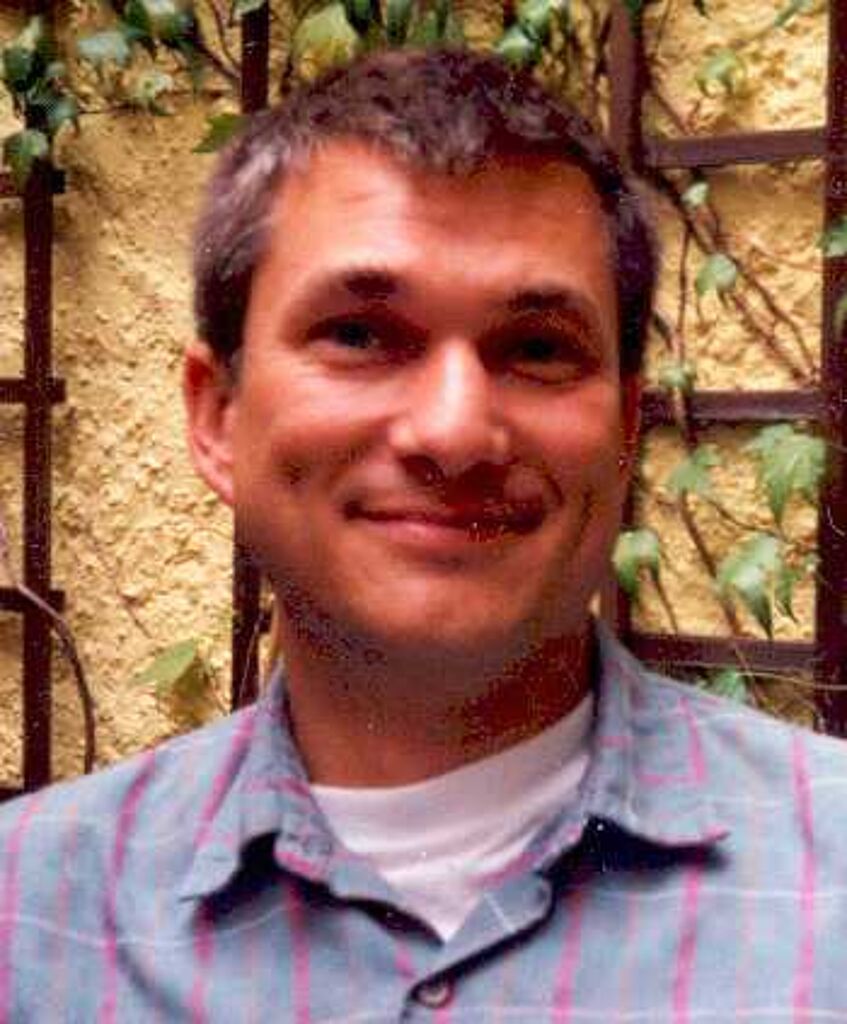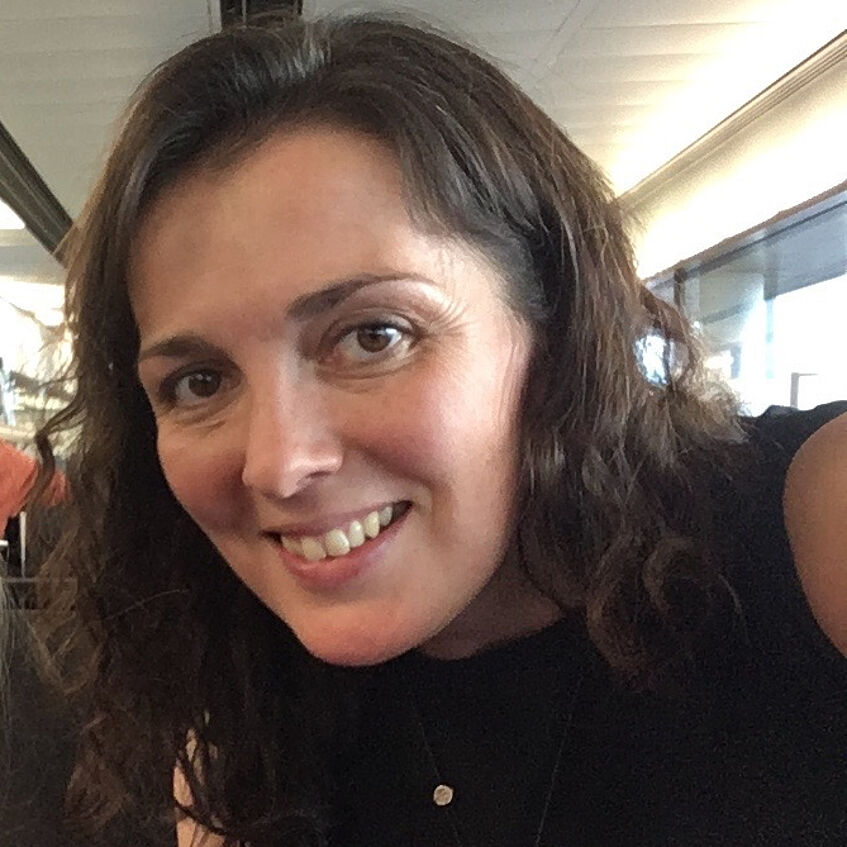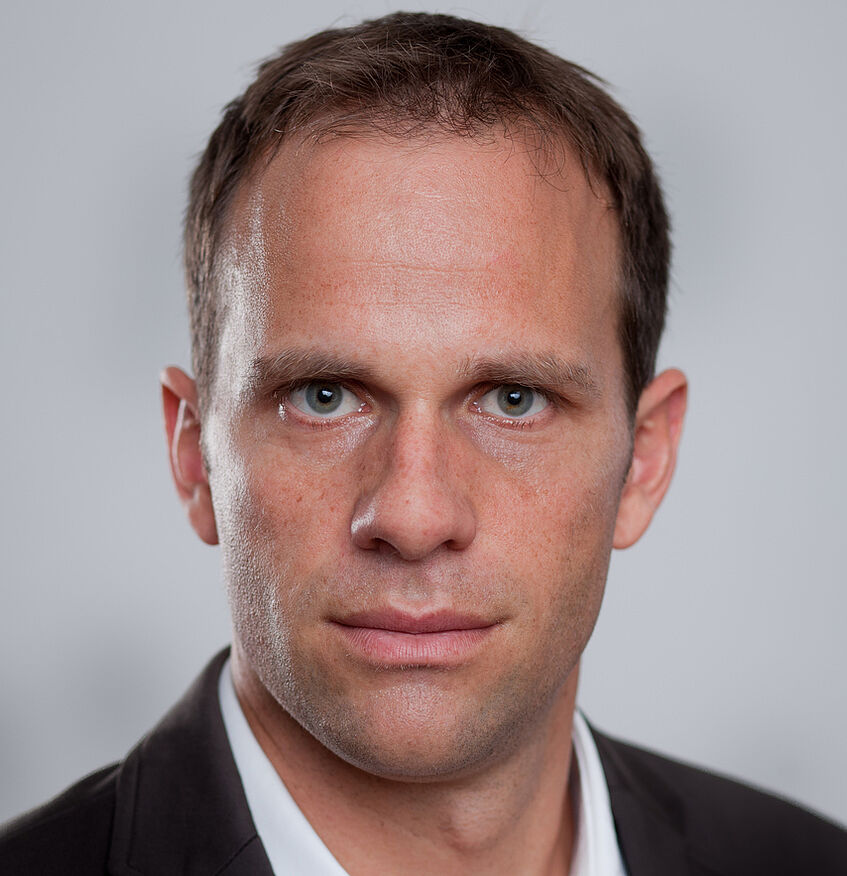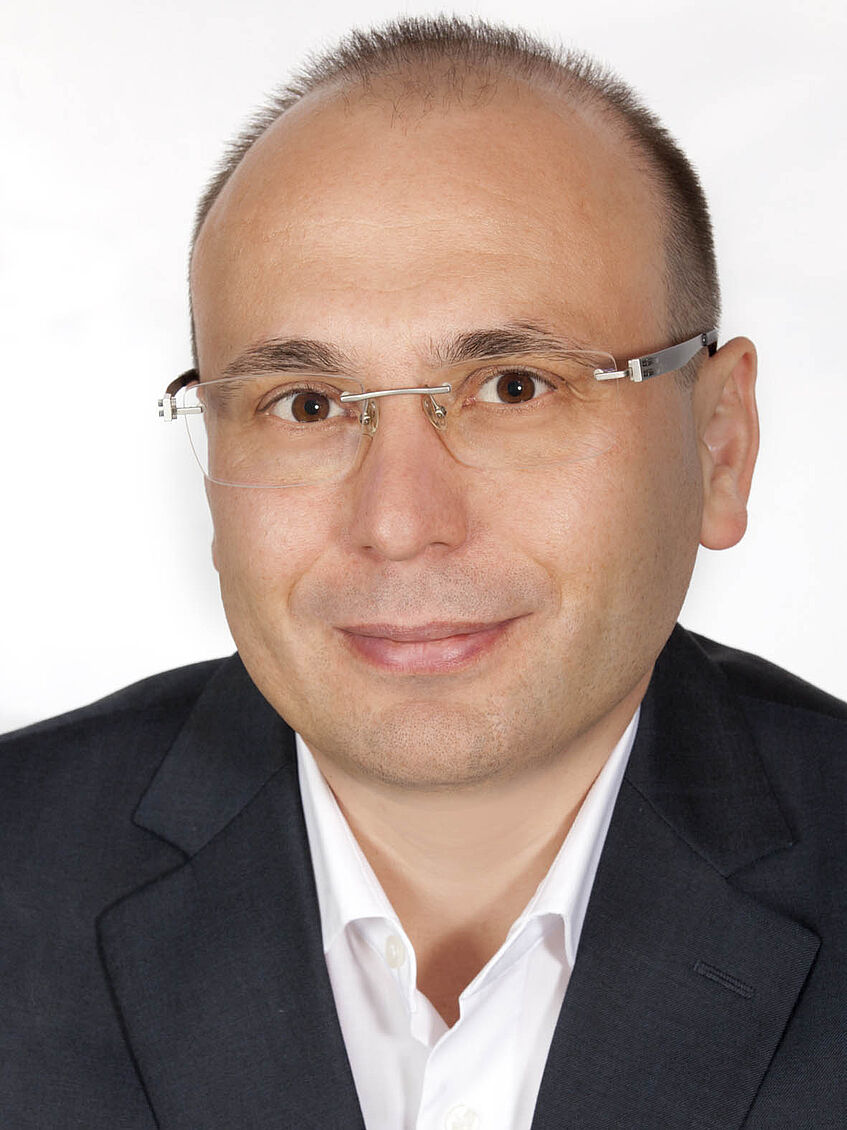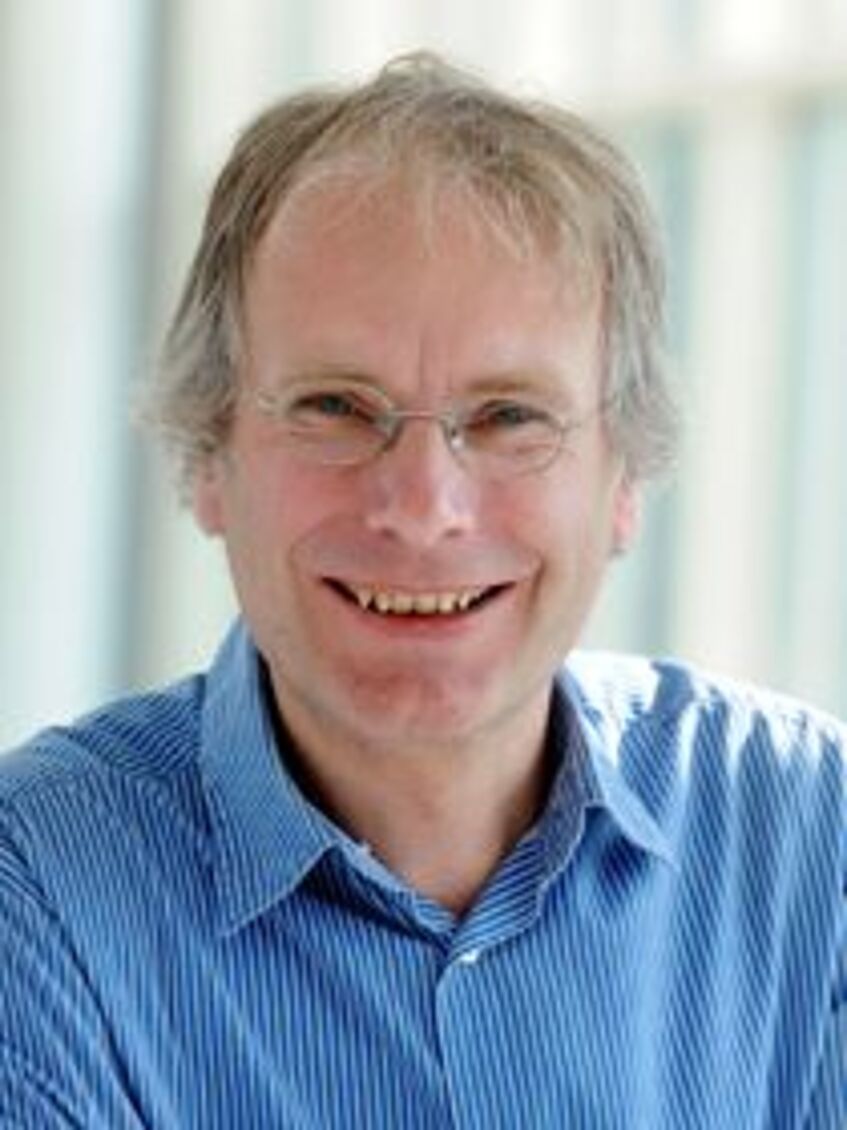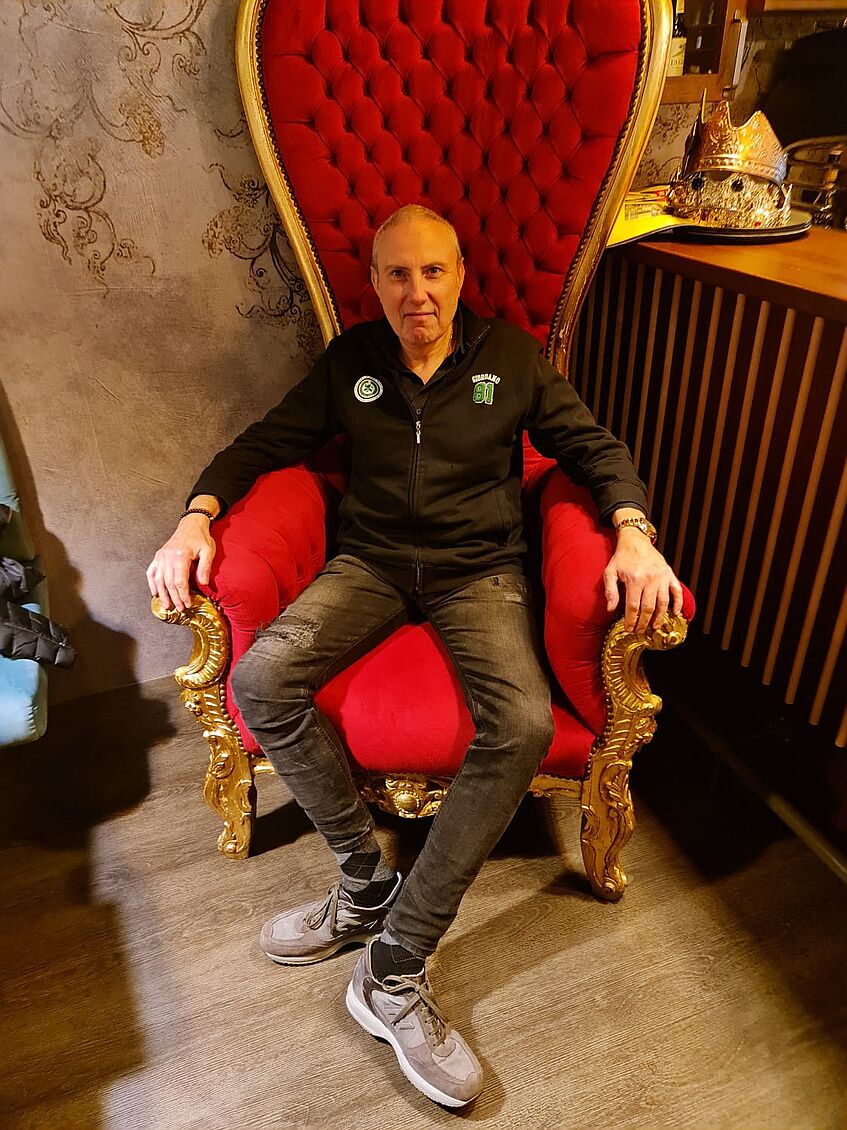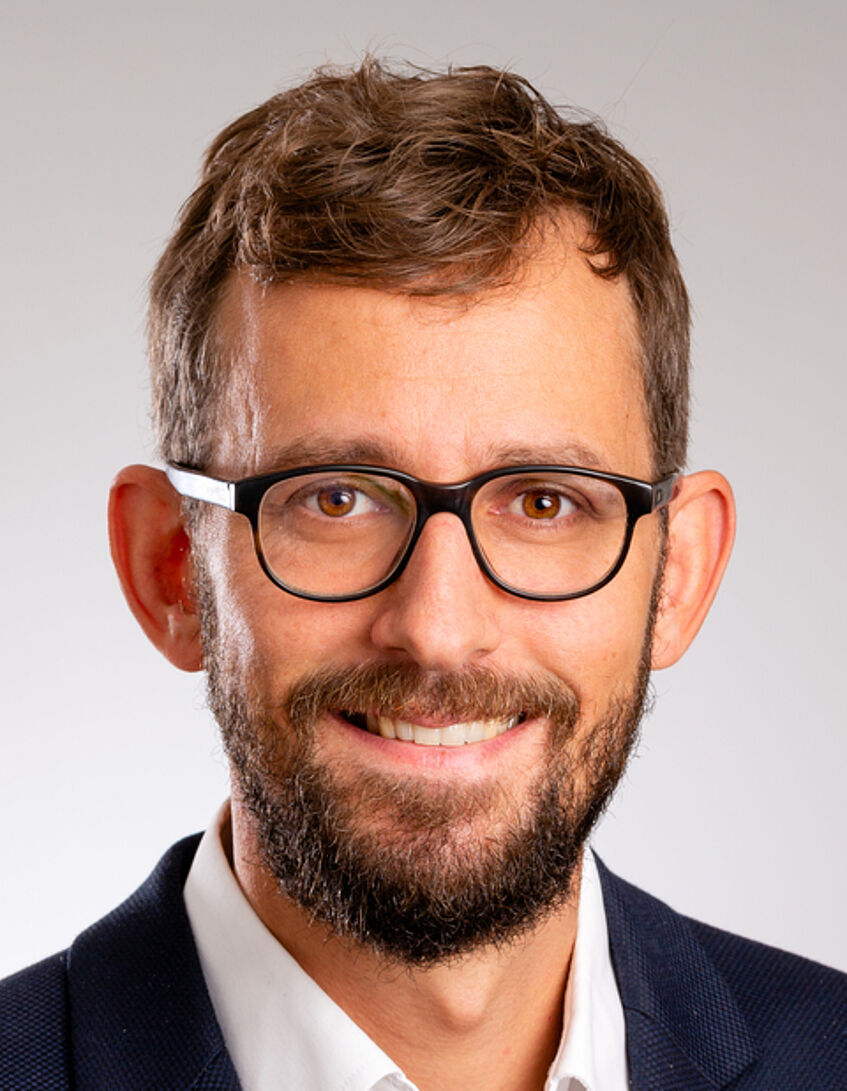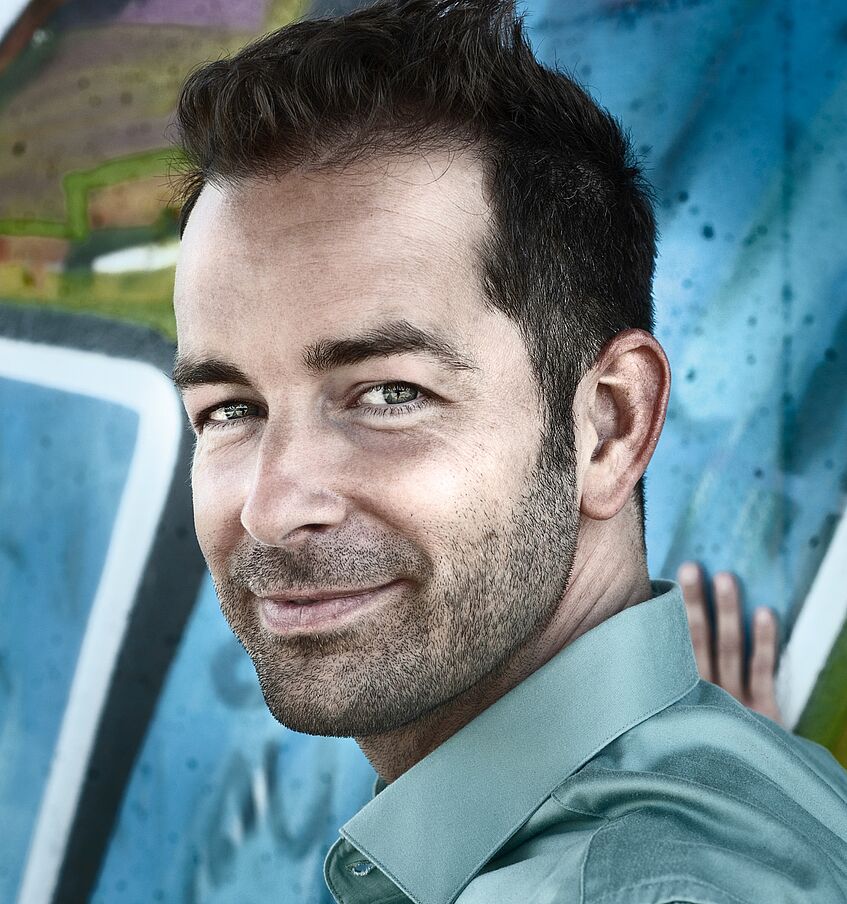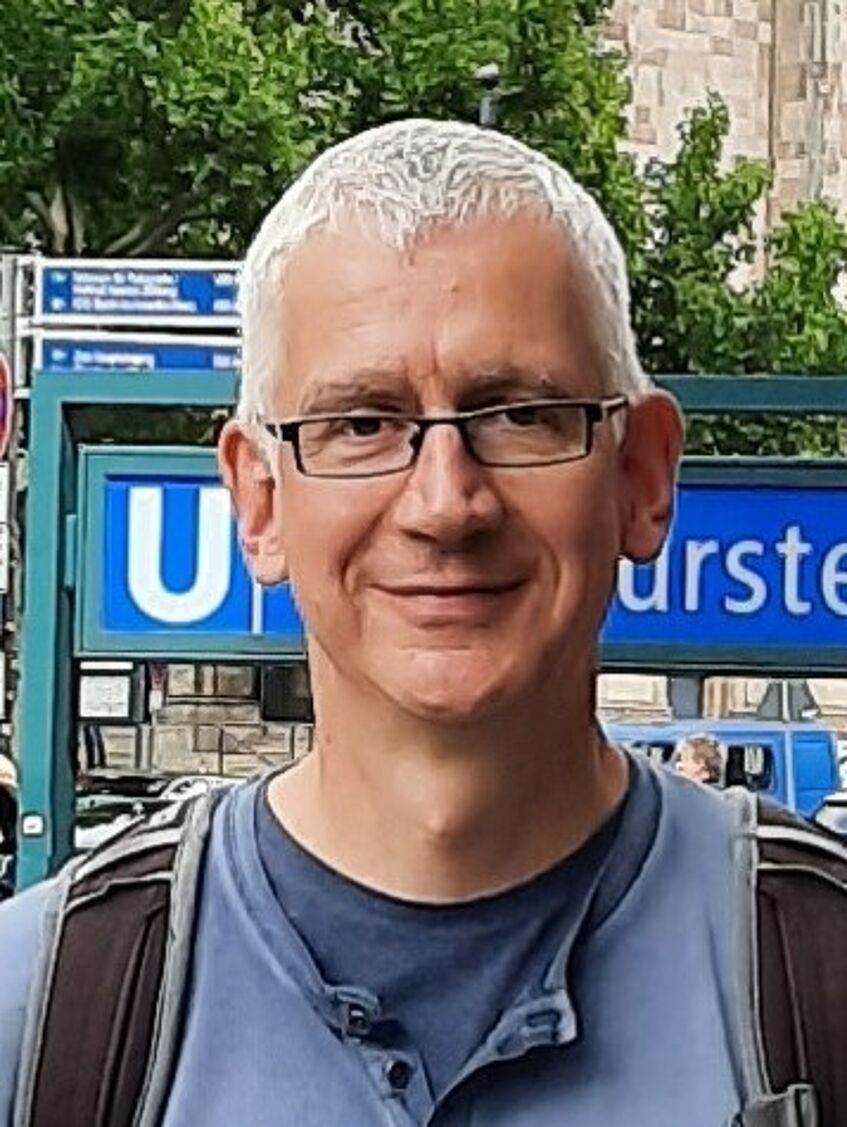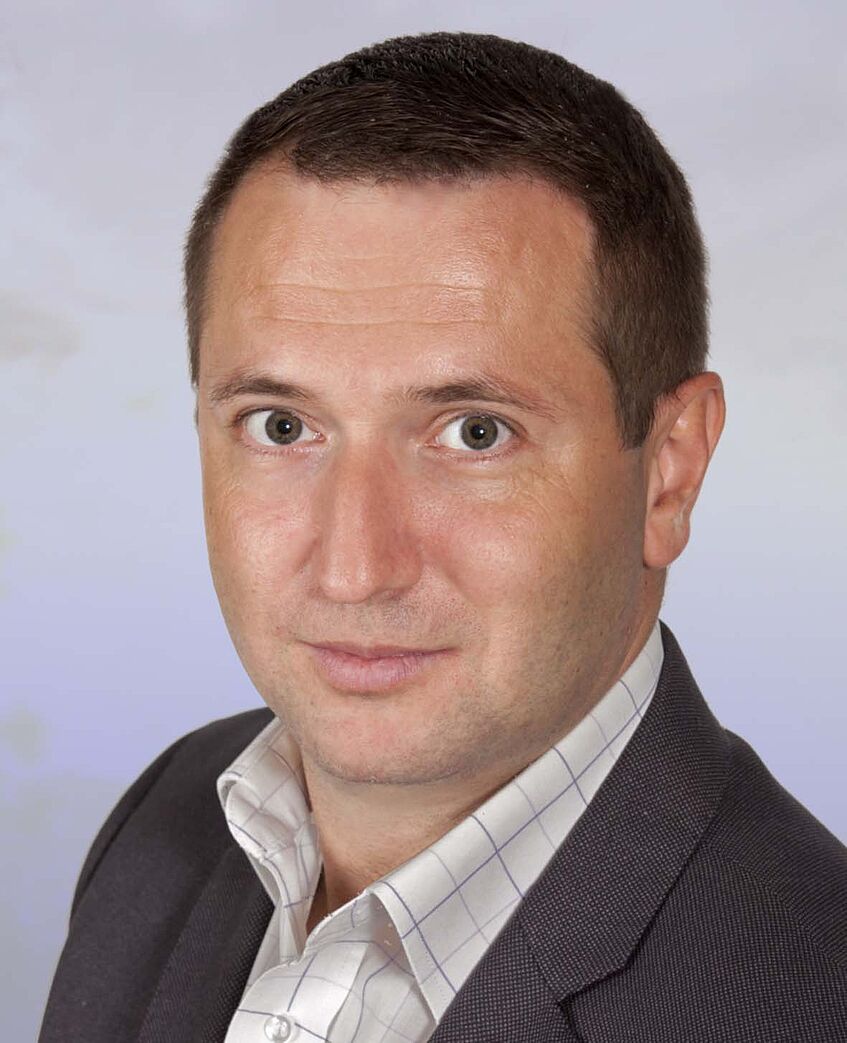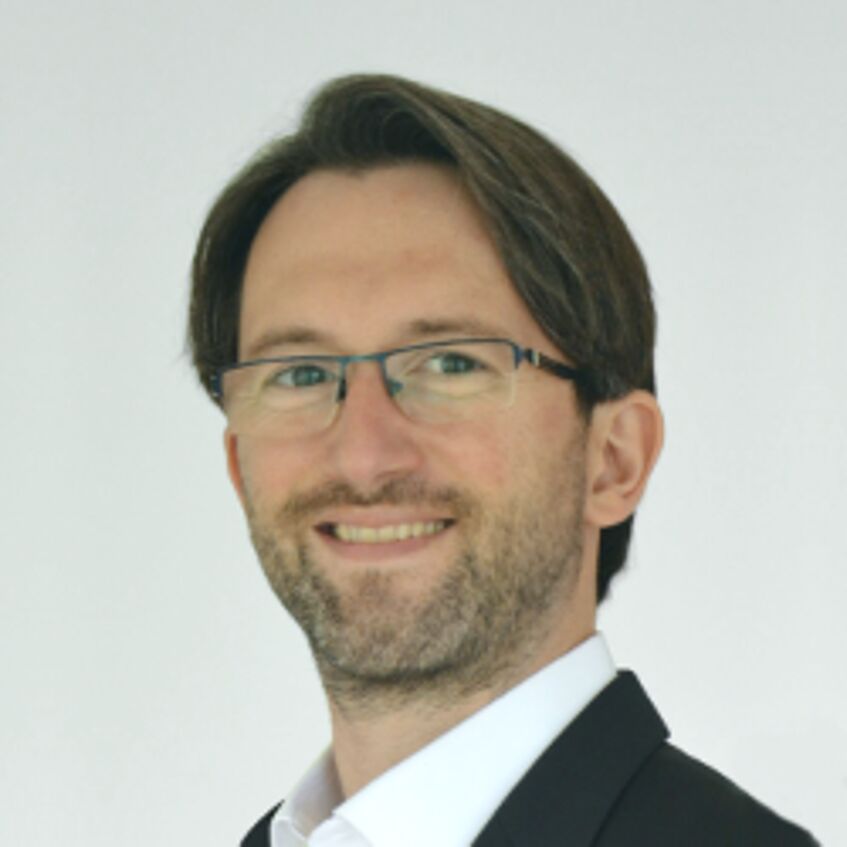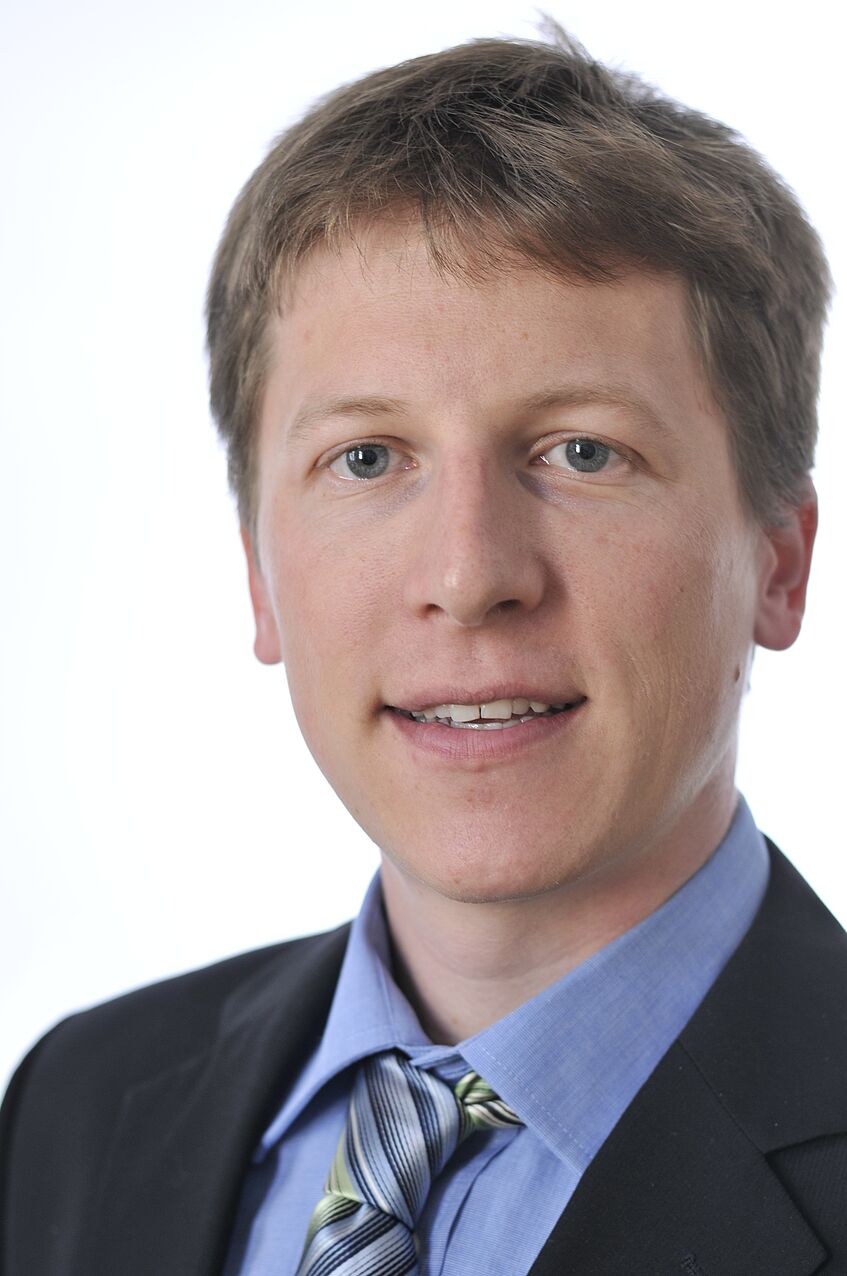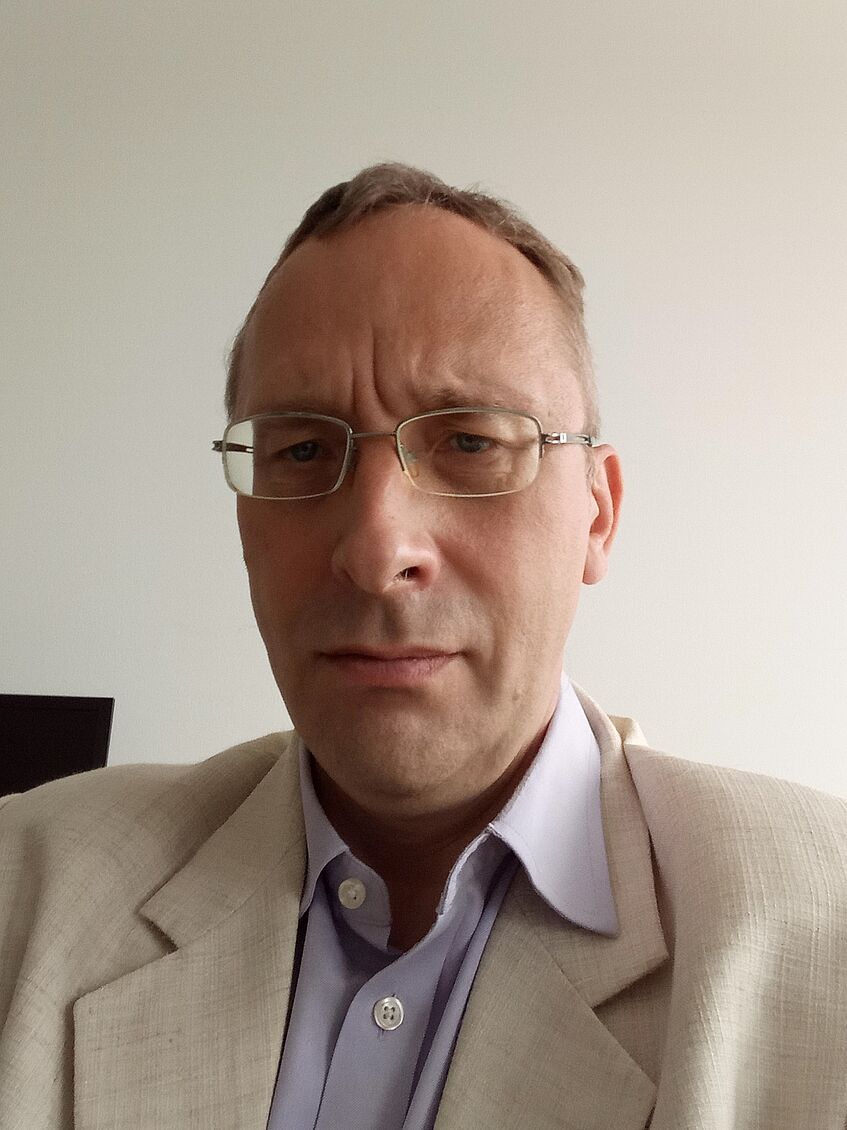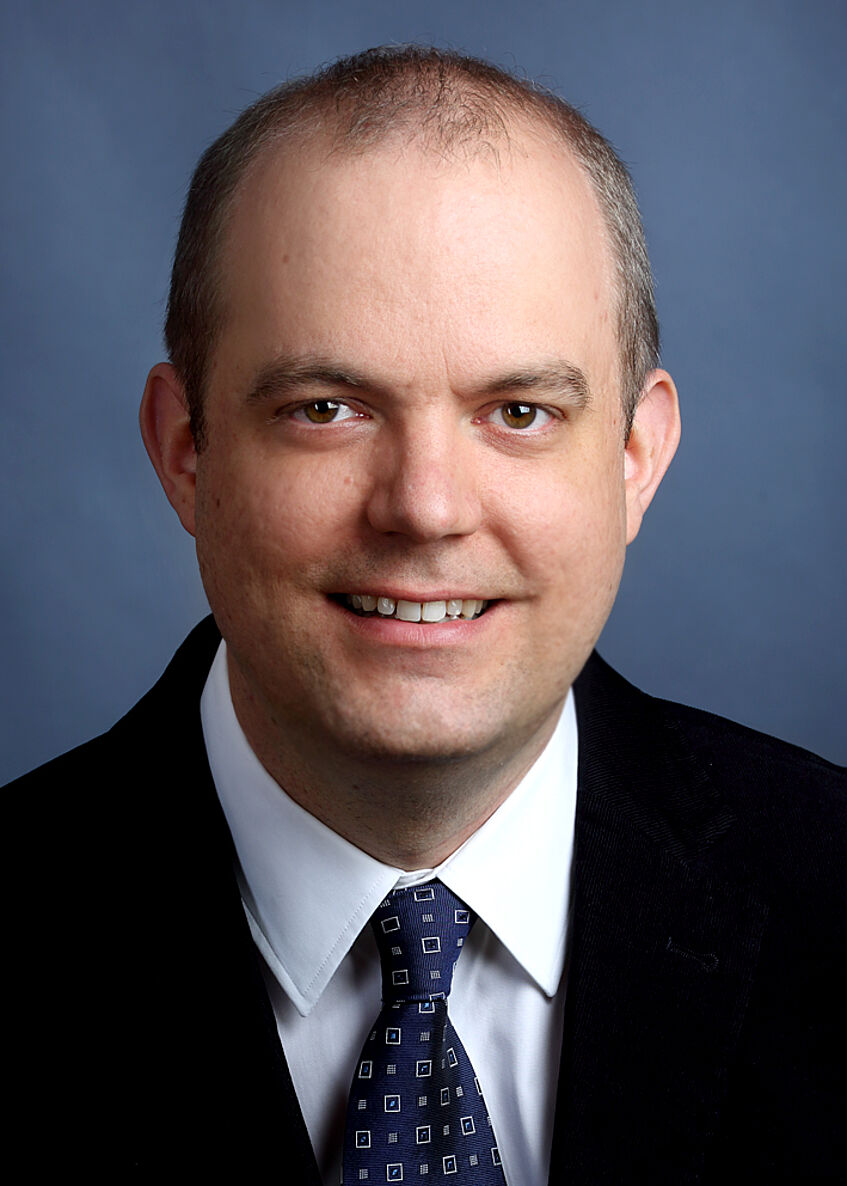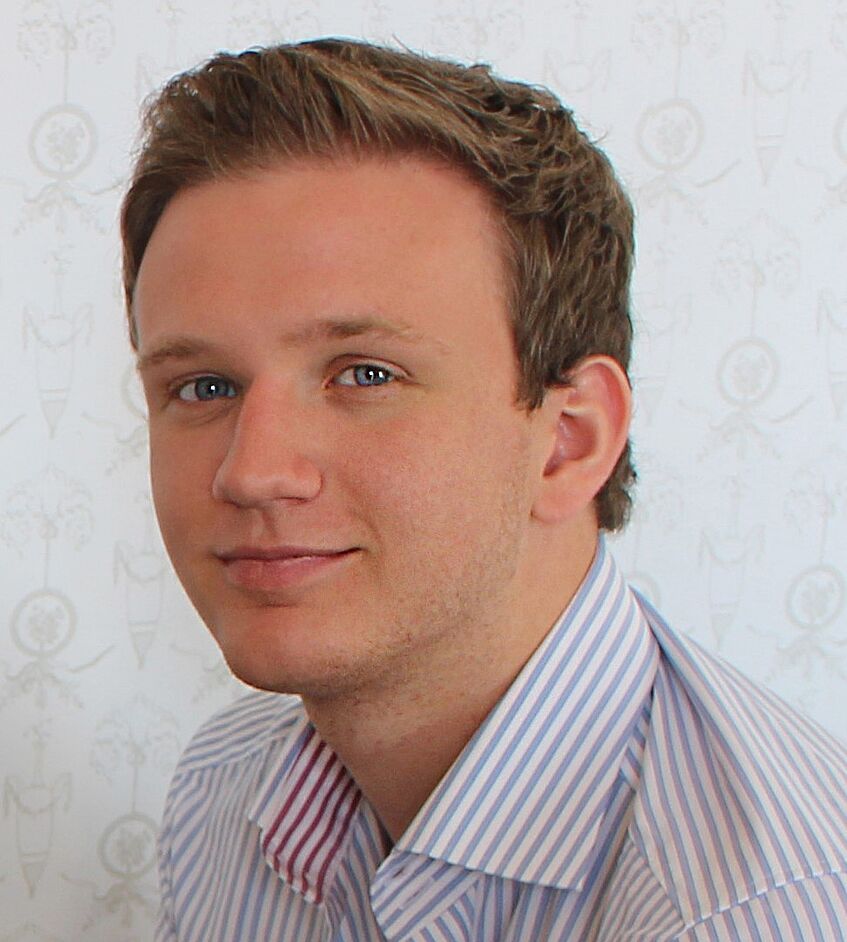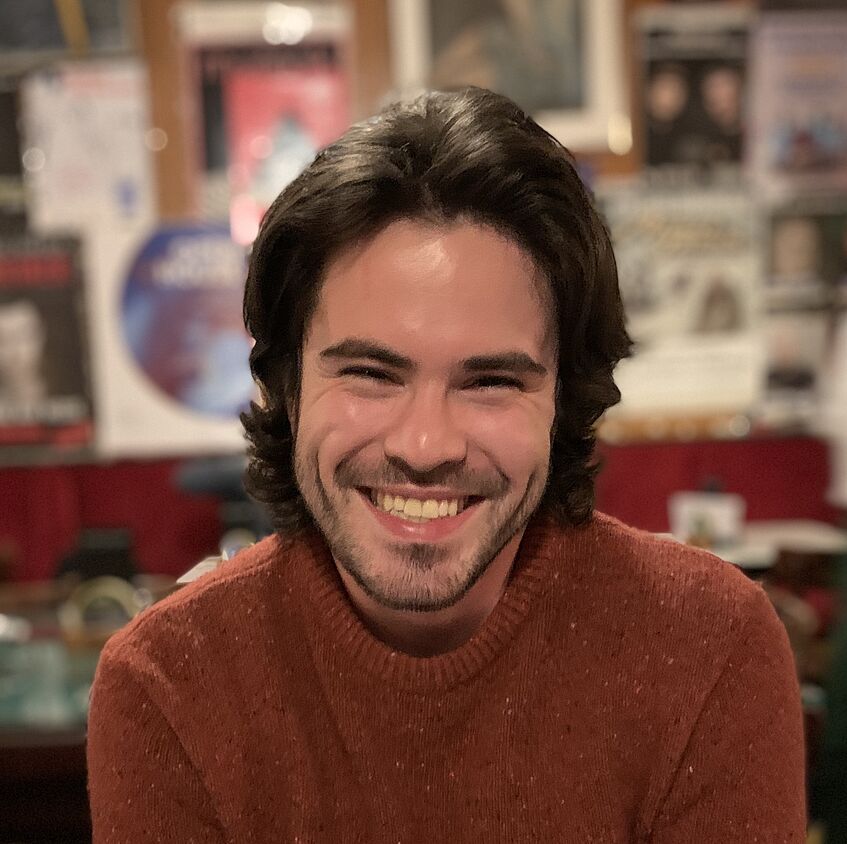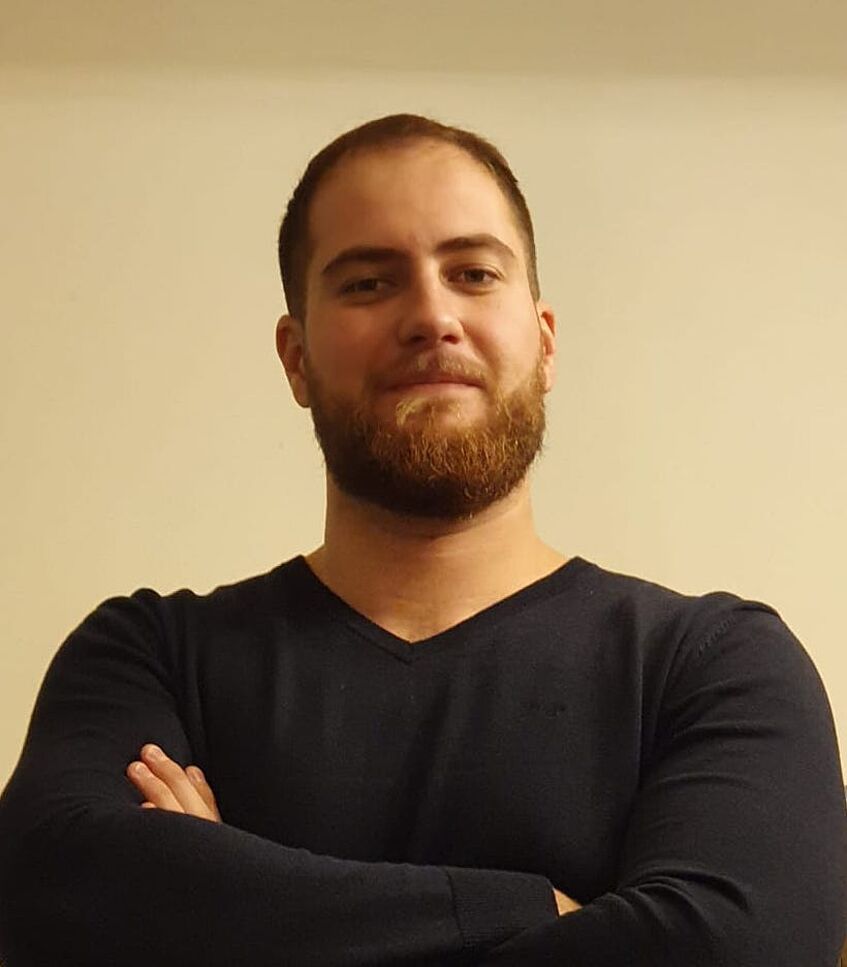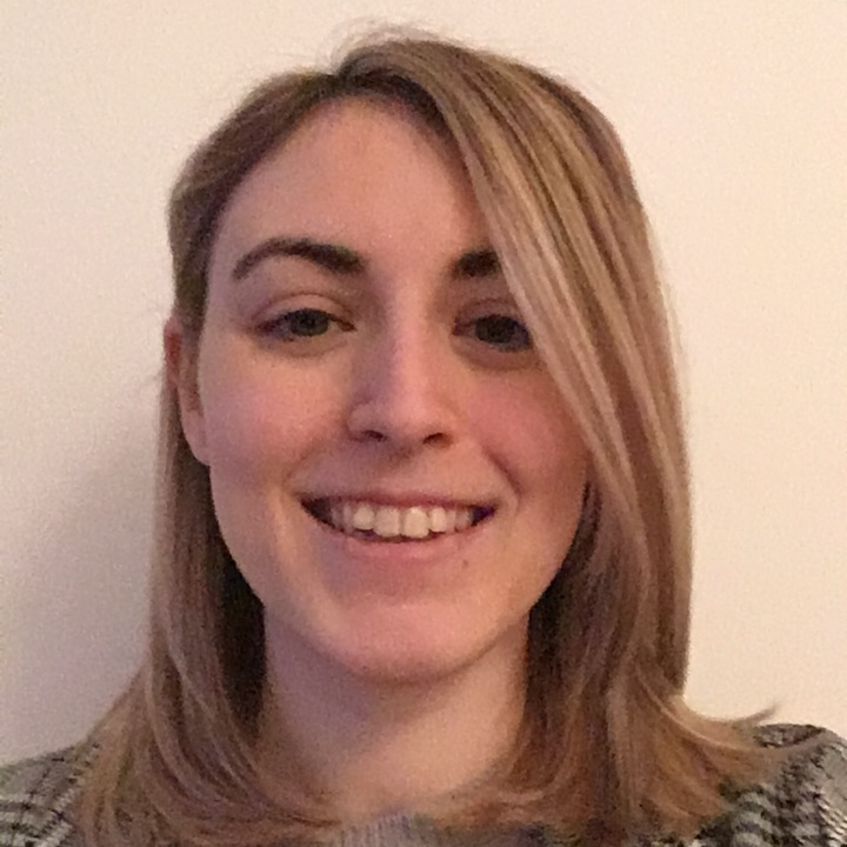Prof. Norbert J. MAUSER (Head of MMM)
Full prof at the faculty of mathematics. Studies at TU Wien and Uni Wien, bachelor in astronomy, master in physics (Molecular Dynamics) with J. Hafner and master+PhD in mathematics (PDE in quantum physics) with P.A. Markowich, habilitation on Asymptotic Analysis of Generalized Schrödinger Equations. Renowned for his work on phase-space formulations of quantum mechanics (Wigner transforms) and mathematically rigorous semi-classical & non-relativistic limits, he has shifted research focus to modelling and simulation of fermionic & bosonic quantum systems, semiconductors, micromagnetism & magnetic Schrödinger equations. START award on “Nonlinear Schrödinger and Quantum Boltzmann equations”, co-PI of several FWF funded Doctoral Collegues and SpezialForschungsBereiche, e.g. the SFB “Vienna Computational Materials Laboratory” (VICOM, led by G. Kresse). He is experienced in leading interdisciplinary research grant projects, e.g. as coordinator of the large EU funded networks HYKE and DEASE, as director of the Wolfgang Pauli Institute and of the “Institut CNRS Pauli” UMI2842. He is extending his “applied & computational mathematics” tools e.g. to “low rank tensor methods” and “machine learning”, which plays an appropriate role in this platform.
Contact: T: +43-1-4211-50663, norbert.mauser@univie.ac.at
Prof. Sofia KANTOROVICH (Deputy Head of MMM)
Associate Professor at the faculty of Physics. Studies at Ural State University, Ekaterinburg, Russia, bachelor and master in mathematics and applied mathematics, PhD in magnetism and magnetic phenomena (magnetic fluids) with A.O. Ivanov at Ural Federal University (URFU) and Moscow State University, habilitations in magnetic soft matter (UNIVIE) and magnetic phenomena (URFU). Renowned for her work on classical density functional theory to describe self-assembly of magnetic nanorparticles, molecular dynamics simulations and analytical theories for anisometric and anisotropic magnetic colloids and modelling of magneto-elastic coupling in ferrogels and magnetic elastomers. START award on “Bridging Scales in Dipolar Soft Matter”, co-PI of FWF funded Doctoral School of Physics. She was a coordinator of the EU Commission Grant European Training Network on Colloids with Designed Response. Currently she is focused on coarse-grained modelling of rheology and mechanics of magneto-responsive and magneto-active systems with particular emphasis on self-assembly, phase behaviour and magnetic response.
Contact: T: +43-1-4277-73271, sofia.kantorovich@univie.ac.at
Prof. Dieter SUESS (Deputy Head of MMM)
He did his master in physics on rare earth permanent magnets with J. Fidler, PhD in the field of ferromagnetic and anti-ferromagnetic structures with T. Schrefl, habilitation in Computational Material Sciences. In 2004 he proposed exchange spring media which broke the recording trilemma. Within a cooperation with Infineon (Christian Doppler Laboratory) the main origin of noise of GMR sensors was found. An innovative topological vortex structure was proposed and found to suppress chaotic behavior which is applied by Infineon for industrial sensors and proposed for the Houska award. He is group speaker of “Physics of Functional materials” and head of the CD – Lab “Advanced Magnetic Sensing and Materials”. D. Suess headed 29 research projects with a total budget of > 6 Mio Euro. He supervised 16 PhD students. He published 214 peer reviewed papers (cited >5500 times, h-index is 35, google scholar 09/22/2020) 9 book chapters and 16 patent families. He gave 29 invited lectures, 40 invited talks at international conferences and 16 keynote lectures and plenary.
Contact: T: +43-1-4277-72730, dieter.suess@univie.ac.at
Prof. Andrii CHUMAK
Since 2019 Professor at the Faculty of Physics at the University of Vienna and the Head of the Research Group “Nanomagnetism and Magnonics”. 1999-2005 Bachelor and Master’s Degree in Applied Physics at Taras Shevchenko National University of Kiew; 2004 Visiting Scientist, Colorado State University; 2009 PhD at Taras Shevchenko National University Kiew; 2009-2015 PostDoc and Research Associate at the Faculty of Physics, TU Kaiserslautern; 2016 Habilitation on "Magnonic crystals for data processing", TU Kaiserslautern; 2017 Junior Professor at the TU Kaiserslautern. In 2016 obtains ERC Starting Grant “Nano-scale magnonic circuits for novel computing systems”. The main research fields are experimental solid state physics, magnetism, magnetization dynamics, magnonics, spintronics, nonlinear wave physics, and nanotechnology. The main research achievements are: the realization of nano-scaled magnonic circuits for unconventional computing, the discovery of Bose-Einstein condensation of magnons by rapid cooling, the development of a magnon transistor, a set of investigations on magnonics crystals and spin-wave excitation and detection by spin-orbit torque. In the period of 2013-2019 A. Chumak was the PI in 7 research projects granted by ERC, DPG and FWF. A. Chumak is author and co-author of 3 book chapters and 80 peer-reviewed articles in leading journals including 8 reviews and 11 articles in Nature PG. The publications collected 935 citations in Scopus in 2019 (5162 citations in total), h-index = 35; the results were presented at 95 international conferences and seminars including 38 invited talks.
Contact: T: +43-1-4277-739-10, andrii.chumak@univie.ac.at
Prof. Thomas SCHREFL
Master in solid state physics at TU Wien with J. Fidler, PhD on permanent magnets with H Kronmüller, and habilitation on computational physics. He has a twenty years experience in applied micromagnetics. He developed methods for magnetic materials and device design with the FWF funded START Project "Advanced numerical micromagnetics". He worked at IBM Almaden on the development of massively parallel micromagnetic solver for the IBM Blue Gene. He was Professor of Functional Materials at The University of Sheffield where he was leading the modelling and simulations activities in materials. He works with leading industries (Siemens, Toyota Motor Corporation) on the design of rare-earth reduced permanent magnets. Together with Exl, Mauser, Suess he developed highly efficient numerical methods for computational magnetism within the framework of the SFB VICOM. He was partner of several EU projects on spin electronics, magnetic data storage, and permanent magnets. He currently runs the Christian Doppler (CD) Laboratory for "Magnet design through physics informed machine learning".
Contact: T: +43-1-2622-23420-20, thomas.schrefl@donau-uni.ac.at
Prof. Peter A. MARKOWICH
Professor at the Faculty of Mathematics of Vienna University and Distinguished Professor at KAUST. After studies of Technical Mathematics, Doctorate and Habilitation at TU Wien, he held professor positions at Ecole Polytechnique Paris, TU Berlin, Purdue Univ., DAMTP Univ. Cambridge, as well as many visiting positions. His numerous awards include a Wittgenstein award. He is an experienced (co-)coordinator of international network projects and, e.g., FWF funded doctoral schools and SFB. He is the founding father of a school in Applied PDE, his PhD students including A. Jüngel, N.J. Mauser, B.-C. Schönlieb and he is the founding president of the Wolfgang Pauli Institute. His primary research interests are in mathematical / numerical analysis of partial differential equations (PDEs) and their application in (quantum) physics – fluid dynamics – semiconductors, biology and social sciences. In particular he is interested in classical and quantum mechanical kinetic theory - Wigner transforms and WKB methods, inverse problems in solid state physics, Bose Einstein condensates,… He currently works on transportation networks, Bohmian trajectories,…, and also neural networks - “machine learning”.
Contact: T: +43-1-4211-50611, peter.markowich@univie.ac.at
Senior Scientists
Dr. Claas ABERT
Senior Scientist at University of Vienna. Master in physics on thermally activated micromagnetic simulations, PhD on discrete mathematical concepts for micromagnetic simulations with M. Hinze and G. Meier at U. Hamburg. He is the author and main developer of various micromagnetic codes, including the finite-element code magnum.fe that solves the micromagnetic equations including a self-consistent spin-diffusion model. His research spans from numerical algorithms for the solution of partial differential equations and inverse problems to the application of these methods to magnetic and spintronics systems such as magnetoresistive sensors and spin-torque MRAM. C. Abert has given various lectures on computational physics and currently teaches micromagnetics and spintronics at the U. Wien; he has a habilitation in physics at U. Wien.
Contact: T: +43-1-4277-72731, claas.abert@univie.ac.at
PD Dr. Lukas EXL
Senior Scientist at University of Vienna. Master in applied mathematics at TU Wien in the field of numerical analysis for differential equations, supervised by W. Auzinger, PhD in Computational Physics on tensor methods for simulations in micromagnetism under the supervision of T. Schrefl at TU Wien and within the SFB VICOM. Currently PI of the FWF project “Reduced Order Approaches in Micromagnetism (ROAM)" affiliated at WPI and FWF project "Design of Nanocomposite Magnets by Machine Learning (DeNaMML)" for the green energy transition at platform MMM. He also runs two accompanying projects at the Vienna Scientific Cluster (VSC). Research on the development of (large-scale) numerical methods for PDEs and optimization in the field of computational magnetism; specifically machine learning analysis for magnetic materials, physics-informed neural networks (PINNs), data-driven models for magnetization processes, and low-rank kernel and tensor methods for (nonlinear) dimensionality reduction. He has a long-lasting track record with the MMM-team in several joint projects. Member of the “Applied & Computational PDE” group at Fak. Math for more than 9 years. He supervises master and PhD students and teaches applied machine learning, numerical analysis and methods in "Computational Science" at U. Wien. He has a habilitation in Computational Science.
Contact: T: +43-1-4277-50426, lukas.exl@univie.ac.at
Dr. Hans Peter STIMMING
Senior Scientist at University of Vienna. Master in technomathematics on Numerics for Semi-classical Schrödinger equations at TU Berlin, supervised by P.A. Markovich, PhD in Mathematics on numerical analysis and simulation of nonlinear Schrödinger equations under the supervision of N.J Mauser. Research on numerical methods and simulations for quantum systems and Micromagnetism, Numerics and analysis for dispersive PDE, for example magnetic Schrödinger equations. Development of codes applying e.g. absorbing boundary methods and parallelization. Moerover work on semi-classical analysis. Member of the “Applied & Computational PDE” group of Mauser for more than 12 years. He supervises master and PhD students and teaches bachelor and master courses on Applied mathematics, Numerics and PDE.
Contact: T: +43 - 1 - 427750679, hans.peter.stimming@univie.ac.at
Dr. Oleksandr DOBROVOLSKIY
Since 2019 Head of the Superconductivity and Spintronics Laboratory at “Nanomagnetism and Magnonics”, Faculty of Physics, University of Vienna. 2000-2005 Bachelor and Master’s Degree in Physics at V. Karazin Kharkiv National University; 2009 PhD from B. Verkin Institute for Low Temperature Physics and Engineering (ILTPE), 2009-2016 PostDoc and Research Associate at the Physics Institute, Goethe University Frankfurt am Main; 2016 Habilitation in Physics, Goethe University Frankfurt am Main; 2016 Doctor of Science in Superconductivity (ILTPE), 2016-2019 Privatdozent and Head of the Nano-Fluxonics Laboratory at the Physics Institute, Goethe University Frankfurt am Main. Main research fields: experimental condensed matter physics, low temperature physics, superconductivity, magnetism, spintronics, nonlinear wave physics, and nanotechnology. Main research achievements: Detection of microwave generation by moving Abrikosov vortices, observation of the interaction of spin waves with magnetic flux quanta, discovery of microwave-stimulated superconductivity in the vortex state and a set of investigations on direct-write nanomagnets, nanoengineered superconductors and 3D nano-architectures. O. Dobrovolskiy is author and co-author of 1 book, 3 book chapters and more than 100 peer-reviewed articles in leading journals including 5 reviews and 6 articles in Nature PG, h-index = 28. His results were presented at 82 international conferences and seminars, including 49 invited talks.
Contact: T: +43-1-4277-739-20, oleksandr.dobrovolskiy@univie.ac.at
Dr. Philipp MARQUETAND
Senior scientist at the Institute of Theoretical Chemistry, Faculty of Chemistry, University of Vienna. Studies of Chemistry at Heidelberg and Würzburg, Germany. PhD on theoretical chemistry (quantum dynamics and laser control) with V. Engel at University of Würzburg. Postdoctoral stays in Paris and Jena. Habilitation in theoretical chemistry 2017, University of Vienna, mentored by L. González. He is an expert on machine learning in theoretical chemistry. His research focuses on machine learning for the prediction of electronic energies, forces, and other molecular properties with the aim of highly accurate dynamics simulations. He is also interested in conventional on-the-fly ab initio molecular dynamics with emphasis on nonadiabatic dynamics and is one of the developers of the SHARC code. Other research interests comprise simulations of multiphoton ionization and time-resolved photoelectron spectroscopy.
Contact: T: +43-1-4277-52764, philipp.marquetand@univie.ac.at
Senior Postdocs
Dr. Florian BRUCKNER
Senior Postdoc at University of Vienna. PhD on Multiscale Simulation of Magnetic Nanostructures with D. Suess and D. Praetorius. His research focus are numerical algorithms for the solution of PDEs, like the LLG for micromagnetism or Maxwell's equations for the solution of magnetostatic or eddy current problems. He developed some specialized methods for the solution of inverse problems, eigenmode calculations for simulation of magnetic noise. He has given various lectures on computational physics and especially on the finite element and boundary element method at the U. Wien.
Contact: T: +43-1-4277-72731, florian.bruckner@univie.ac.at
Dr. Igor MAZETS
Project Assistant at University of Vienna. Master in nuclear physics and physics of plasma at St. Petersburg Technical University (1991), PhD in theoretical physics with B.G. Matisov at the same University (1995). His research interests include theory of many-body quantum systems, especially Bose-Einstein condensates and quasicondensates in low-dimensional geometries, as well as nonlinear and quantum optics. He has a long-standing collaboration with the experimental group of J. Schmiedmayer at he Vienna University of Technology. He has delivered various graduate-level lectures on the theory of Bose-Einstein condensates and on the quantum theory of angular momentum.
Contact: T: +43-1-4277-50490, igor.mazets@univie.ac.at
Dr. Jan-Frederik MENNEMANN
Senior Postdoc at University of Vienna. Diploma in mathematics on numerical simulations of quantum waveguides in the transient regime. PhD on numerical methods for nanoscale electronic device simulations with special emphasis on open boundary conditions in the Schrödinger-Poisson setting. His research interests include numerical methods for partial differential equations, optimization and control. Moreover, in cooperation with Andritz Hydro GmbH, J.-F. Mennemann developed a model-predictive control strategy for the operation of a large scale pumped-storage power plant. Currently he is engaged with the simulation of ultracold atom experiments conducted by the Vienna Atominstitut (ATI).
Contact: T: +43-1-4277-50490, jan-frederik.mennemann@univie.ac.at
PhD students
Peter ALLMER, MMSc
Currently enrolled as a Ph.D. student under the supervision of Prof. Mauser in applied mathematics at the University of Vienna. Specialized on the modeling and simulation of complex quantum systems, as the interactions in confined Bose-Einstein condensates and the complex dynamics of waves in quantum plasmas. Master in Mathematics and Physics on super-symmetric Landau-Ginzberg models with defects in it and the numerical treatment for the nonlinear Klein Gordon equation. He is also deployed as lecturer in the class "Applied Mathematics for Geologists" and is a member of Prof. Mauser's "Applied & Computational PDE" group.
Contact: peter.allmer@univie.ac.at
Martin KAISER, MSc
I am currently a PhD student under supervision of Prof. Kantorovich in the Computational and Soft Matter Physics department of the University of Vienna. My Masters was done in the same work group and focused on Molecular Dynamics Simulations of coupled dipolar and active matter systems. My PhD project is a continuation and focuses on cubic dipolar-active particles. The current research is focused on the effects of hydrodynamic interactions as well es the dipolar interactions on the self assembly of those cubic particles, as well as their dynamical properties. We are working in close collaboration with the workgroup of Annette Schmidt at the University of Cologne, to also investigate those systems experimentally.
Contact: martin.kaiser@univie.ac.at
Jakob MÖLLER, MMSc
PhD Student at University of Vienna. Master in physics on Lie Algebras in String Theory under the supervision of S. Fredenhagen. Master in mathematics on the Pauli equation (semi-relativistic model of charged spin-1/2-particles) under the supervision of N.J. Mauser and G. Teschl. Member of the doctoral program „Dissipation and Dispersion in Nonlinear PDE“. Focus of research lies on self-consistent semi-relativistic PDE centered around the Pauli equation and its self-consistent, nonlinear generalization, the Pauli-Poiswell system. Research includes analysis of well-posedness, asymptotics, scattering, long-time behavior and model hierarchies of semi-relativistic PDE. In collaboration with T. Gutleb (Imperial College) numerical solutions are a key research subject of the project as well.
Contact: jakob.moeller@univie.ac.at
Deniz MOSTARAC, MSc
Currently a PhD student in under supervision of Prof. Kantorovich in the Computational and Soft Matter Physics department of the University of Vienna. Obtained a Master degree in Physics at the University of Vienna with a focus on particle physics. Master thesis done as a part of the SMI institute and the ALICE collaboration at CERN, on PWA methods for proton-proton and proton-antiproton central collision, within the framework of Regge theory. PhD project based on coarse-grained Molecular Dynamics simulations of magnetic soft matter. Current research focused on the effects of hydrodynamic interactions on the properties of magnetic filaments, using the Lattice-Boltzmann method. Also working on assembly of DNA origami based systems, in collaboration with Prof. Gang, with a focus on directional assembly (CUNY and BNL).
Contact: deniz.mostarac@univie.ac.at
Margaret ROSENBERG, MSc
PhD Student in Computational Physics at the University of Vienna, with the primary research focus on computer simulation of anisotropic and anisometric dipolar colloidal suspensions. Master's in Computational Science, with a focus on Computational Physics under the supervision of S. Kantorovich, on the topic of self-assembly of charged anisotropic colloids. Bachelor's in Mathematics. Member of the Doctoral College of Advanced Functional Materials. Currently a member of the Kantorovich group. Also teaching exercises courses for classes such as "Introduction to Mathematics for Physicists" and "Theoretical Physics 2: Electrodynamics".
Contact: margaret.rosenberg@univie.ac.at
Sebastian SCHAFFER, MSc
Sebastian SCHAFFER, MSc
PhD Student in Computational Physics in the field of AI and machine learning. He did his master studies in computational science with a thesis on machine learning for computational micromagnetism titled "Machine learning methods for the prediction of micromagnetic magnetization dynamics" supervised by L. Exl and N.J. Mauser within the FWF-funded project “ROAM” in the environment of the University of Vienna research platform MMM and the Wolfgang Pauli Institute.
Master students
Alexander KORNELL, BSc
Alexander KORNELL, BSc
Master student supervised by T. Schrefl and L. Exl within the CD-Lab "Magnet design through physics informed machine learning" of T. Schrefl and the platform MMM with the thesis topic "Description of collective magnetization processes with machine learning models".

